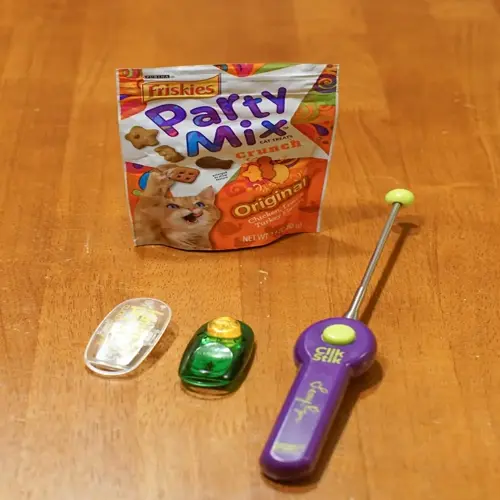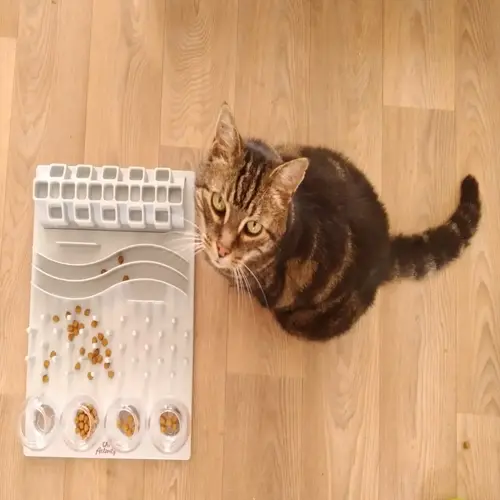How do I transition my cat to new food?

Written by
John Williams
Reviewed by
Prof. Henry Webster, Ph.D.When switching your cat's food to a new brand, it's essential to do so gradually to avoid upset stomachs. Cats have sensitive stomachs and adapt quite slowly to changes in their diet, so if they are switched over suddenly to another food, they usually vomit or experience diarrhea. I always advise my clients to follow a schedule during the transition to avoid this.
Bowl Management
- Use separate bowls for old and new food
- Place bowls 3 feet apart during transition
- Clean bowls thoroughly between meals
Appetite Stimulation
- Warm wet food to 100°F/38°C
- Add ¼ tsp nutritional yeast to meals
- Sprinkle freeze-dried liver as topping
Problem Solving
- For refusal: skip one meal then retry
- For vomiting: pause transition 24 hours
- For diarrhea: add plain pumpkin puree
Weigh food ratios using kitchen scales as opposed to using measuring cups. There are varying densities of kibble, so cup measurements will not be accurate. Weigh each portion destined for a different cat separately and combine when finished. This will yield exact ratios and eliminate possible digestive problems. I personally weigh my cats' food each day to ensure consistency in the product.
Watch your cat closely during the transition. Check to see if the stool consistency is normal- that of firm Play-Doh. Note how fast and with what enthusiasm the food is eaten. Note any vomiting or lethargy. Keep a daily diary of these things and their effects. Sudden changes will indicate that veterinary consultation is necessary.
Special cases will require adjustments. Transition senior cats over a period of 10-14 days instead of 7. For cats with medical problems, consult your veterinarian first. Use prescription transition protocols for specialty diets. Never force-feed cats that will not eat after 24 hours.
Successful transitions lead to lasting health benefits. Cats who have transitioned well will continue to digest food normally and absorb nutrients efficiently. Cats who transition successfully will adapt better to future dietary changes. Your patience during the transition will help you avoid costly emergency vet bills for digestive upset.
Read the full article: Complete Cat Feeding Guidelines for Every Owner

